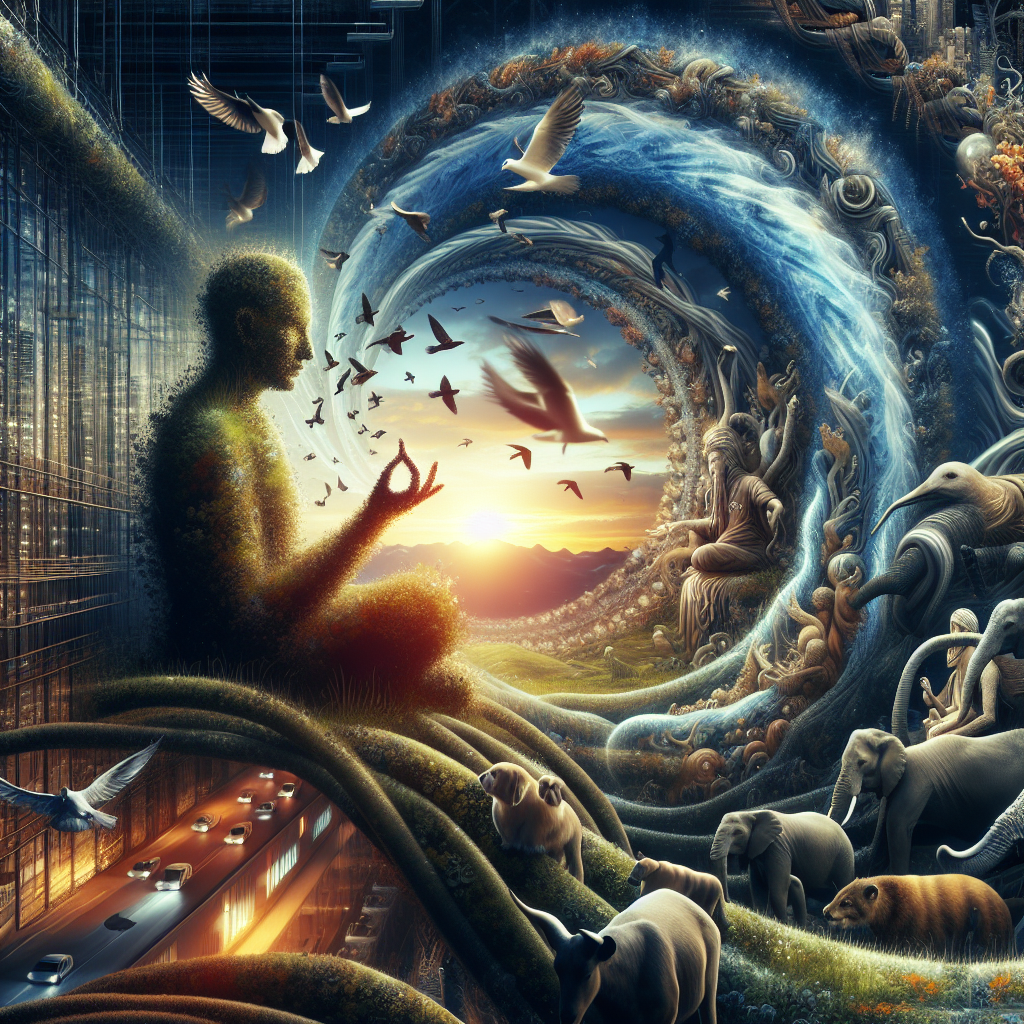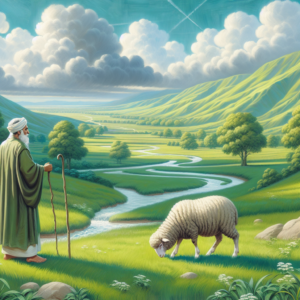Spiritual Devotional about Non-Duality and Oneness
The Beauty of Non-Duality and Oneness
Hello friends! Today, we’re diving into two concepts that echo both ancient wisdom and modern spirituality – Non-Duality and Oneness. These terms might seem complex, but they unfold incredible insights about ourselves and the world we live in. So, reset your thoughts, open your hearts, and let’s really dive into these extraordinary concepts.
What is Non-Duality?
Non-duality, coming from the Sanskrit word Advaita, means ‘not-two’. It represents the essence of the universe, acknowledging that at the very core, all life forms are interconnected and one. Every person, beast, bird, tree, or stone around us isn’t separate – we’re all part of an single immeasurable reality.
Exploring Oneness
Taking a step further into this sea of wisdom, we arrive at Oneness. It’s the universal acknowledgment that we all come from the same source and will return to it. It’s the-feeling of interconnectedness we feel when we gaze at a starry sky, or the empathy we feel towards other living beings – lending us the understanding that we all are bound by the very fabric of existence!
Non-Duality and Oneness: A Healing Perspective
In today’s chaotic, individualistic world, these concepts remind us of the tranquil unity we’re part of. They help us shed our misconceptions, dispossession, and ego, realigning our attitudes with compassion, love, and understanding. Isn’t it astonishing to learn that the universe isn’t working against us, but is working as us? So, let’s embrace these teachings and cultivate empathy, unity, and love in our daily lives!
Conclusion
Non-Duality and Oneness are much more than philosophical concepts. They can become guides, helping us navigate life with generosity, acceptance, and love. In understanding that there is no ‘other’, but only ‘us’, we can nurture a world brimming with compassion and unity. So here’s to embracing non-duality, celebrating oneness and realizing the intertwining beauty of existence!
[email-subscribers-form id=”1″]
Q&A about Non-Duality and Oneness
Q: What is Non-Duality?
A: Non-Duality is a philosophical concept that denotes a state of unity, where there is no distinction between the subject and object, or observer and the observed. It rejects the idea of dualistic notions such as good and evil, or self and other.
Q: What does Oneness refer to?
A: Oneness refers to the belief that everything in the universe is connected, and that all beings, events, and objects fundamentally emanate from the same essence or reality.
Q: How do Non-Duality and Oneness relate to each other?
A: Non-Duality and Oneness are interconnected. While Non-Duality communicates the absence of division in experience and perception, Oneness takes it a step further by stating that everything comes from one single source or reality.
Q: What are the applications of Non-Duality and Oneness in daily life?
A: Practicing Non-Duality and Oneness can lead to more empathy and understanding towards others as we perceive them as extensions of ourselves. It can also bring about profoundly transformative experiences, leading to peace, acceptance, and love.
Q: How does the philosophy of Non-Duality contribute to spiritual enlightenment?
A: Non-Duality is a way to spiritual enlightenment as it encourages to perceive the world as it is, without judgment, and without categorizing experiences as good or bad. This transcendent perspective often leads to profound inner peace and wisdom.
Q: Does the sense of “I” disappear in the state of Non-Duality or Oneness?
A: Yes, in the state of Non-Duality or Oneness, the individual sense of “I” or ego is said to dissolve, leaving only the awareness of existence itself. The concept of a separate self is seen as an illusion, and what remains is a unified field of consciousness.
Q: How do Non-Duality and Oneness relate to religions?
A: Many spiritual traditions feature elements of Non-Duality and Oneness. For instance, in Hinduism, the ultimate goal of human life is to realize the Non-Dual nature of reality (Advaita Vedanta). Similarly, in Buddhism, the concept of “interbeing” reflects Oneness, and in Taoism, the Tao is interpreted as the indivisible, fundamental nature of the universe.



